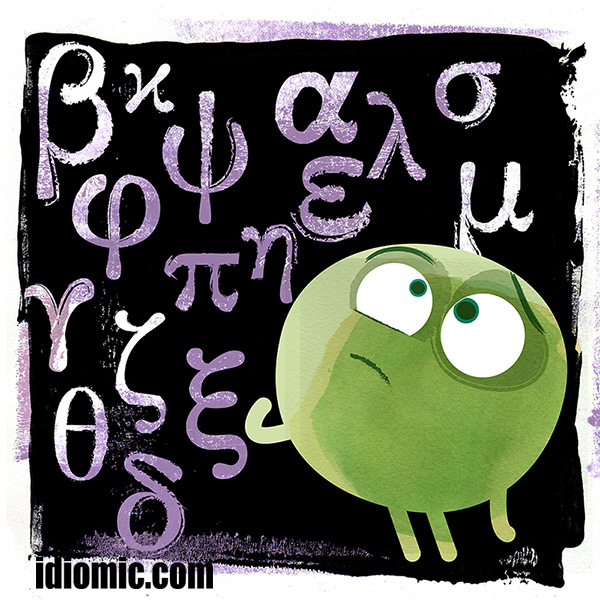Definition: Something you cannot understand, usually because it is so complicated.
Example: When asked by his algebra teacher to solve the equation, Mike just shrugged and said, “Sorry. It’s all Greek to me!”
Origin:
It is widely thought that ‘all Greek to me’ derives from the Latin phrase ‘Graecum est, non legitur or Graecum est, non potest legi’. How’s your latin? Iddy’s is a bit rusty, but he did eventually translate it: ‘It is Greek; it cannot be read‘. Those Romans. Already dismissive of the civilisations before them!
Its modern form began to creep into the English language in the sixteenth century. Similar phrases appear in plays by Dekker and some fellow called William Shakespeare.
This idiom has many different variations in languages around the world. After all, Greeks are not likely to use it, are they? They in fact say ‘This strikes me as Chinese‘. Here a sampling of other language variations:
Italian: To me, this is Arabic.
Slovakian: This is a Spanish village to me.
Icelandic: Fish egg language.
Comparing the incomprehensible to the Chinese language is by far the most common. Hungarian, Hebrew, French, Dutch, and Arabic, to name but a few, use variations on ‘Sounds Chinese to me‘. Not to be outdone, English writing is sometimes referred to as ‘chicken intestines‘ in Cantonese.
Finally, this idiom has a link to the Spanish term ‘gringo‘, slang for somebody not of Spanish origin or non-Spanish speaking. It is a shortening of ‘hablar en griego’. Translation? ‘Speaking in Greek.’


